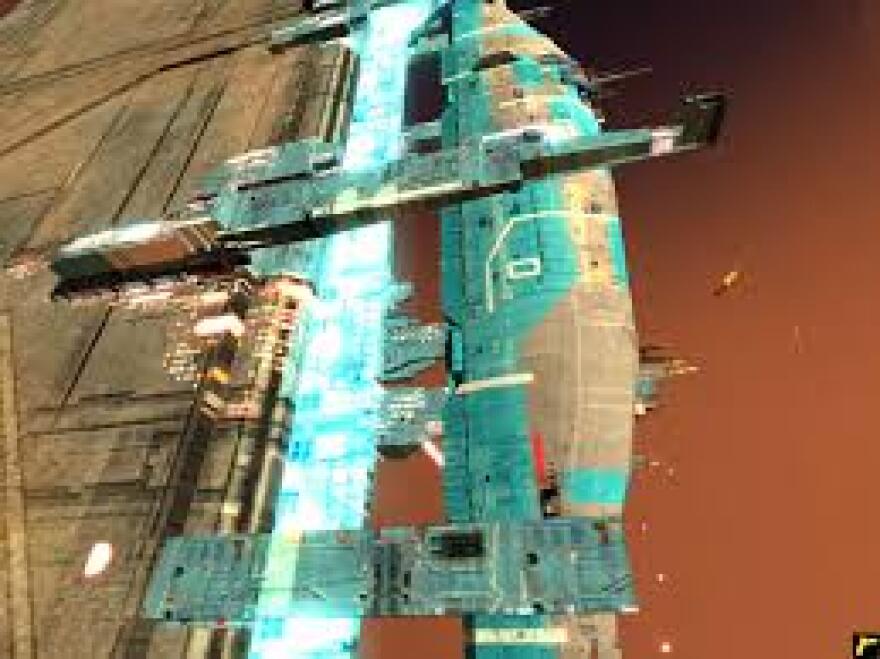The two Homeworld games, released in 1999 and 2003, told the story of an epic journey of a displaced tribe to find a new home planet. Guided by an ancient map, they bravely made their way across the vast reaches of the galaxy, enduring hardships and battles along the way.
The games were recognized at the time as being among the outstanding games of their era, and one of the biggest reasons was Paul Ruskay's award-winning, evocative music: a never-before-heard blend of tech sounds, "space-y" ambience and Middle-Eastern/Indian traditional music.
Now, the same creative team that made the Homeworld games has released a prequel to the story, Homeworld: Deserts of Kharak, set at the moment of a monumental discovery of an ancient artifact that will set the tribe on their epic journey to find a new home.

I talked with Paul about the creative process of composing the music for the first Homeworld games, and revisiting that sound for Deserts of Kharak.
The story of how Deserts of Kharak was created actually starts a few years ago when Gearbox Software bought the rights to the Homeworld IP, and planned to release a re-mastered edition. Getting the music and sound world up to the standards of today's games proved to be a labor-intensive process, as Paul described in his extensive recap of what was involved.

Creating a soundscape on a planet, rather than in space, had its own challenges as well.
"I began by thinking about what kind of music would be around in the Bronze Age, in the sense that it's ancient, and how do I capture 'ancient' in relation to Homeworld, beause the music had to feel like it went before the first one," Ruskay said. The story of the three Homeworld games spans thousands of years.
The Kushan's journey in the original Homeworld took them through a galaxy populated with many different tribes, which gave the world a lived-in feeling. On Kharak, the discovery and expedition to recover the anomaly re-ignites a long-running religious war, with zealous factions.

As he did with Homeworld, giving each of the warring factions their own audio identity, Ruskay also gave each of the tribes on Kharak their own unique musical style, which gives credibility to the world, and makes it feel like it's been inhabited for thousands of years.
"The music of Homeworld has always been about world-building, and creating a leitmotif for each character, suggesting aspects of what that universe is like, and what certain people are like, without having to go into a lot of exposition," he said.
Getting the music recorded was a project on an epic scale, involving musicians in Canada, India and Europe.
"It's amazing to be out the other side now, and say, 'we did it!'" Ruskay said. "And now I can actually be afraid, because everyone has an opinion, and access to the internet!"
With good reviews so far, hopefully we won't have to wait 12 years for another new Homeworld Game.


